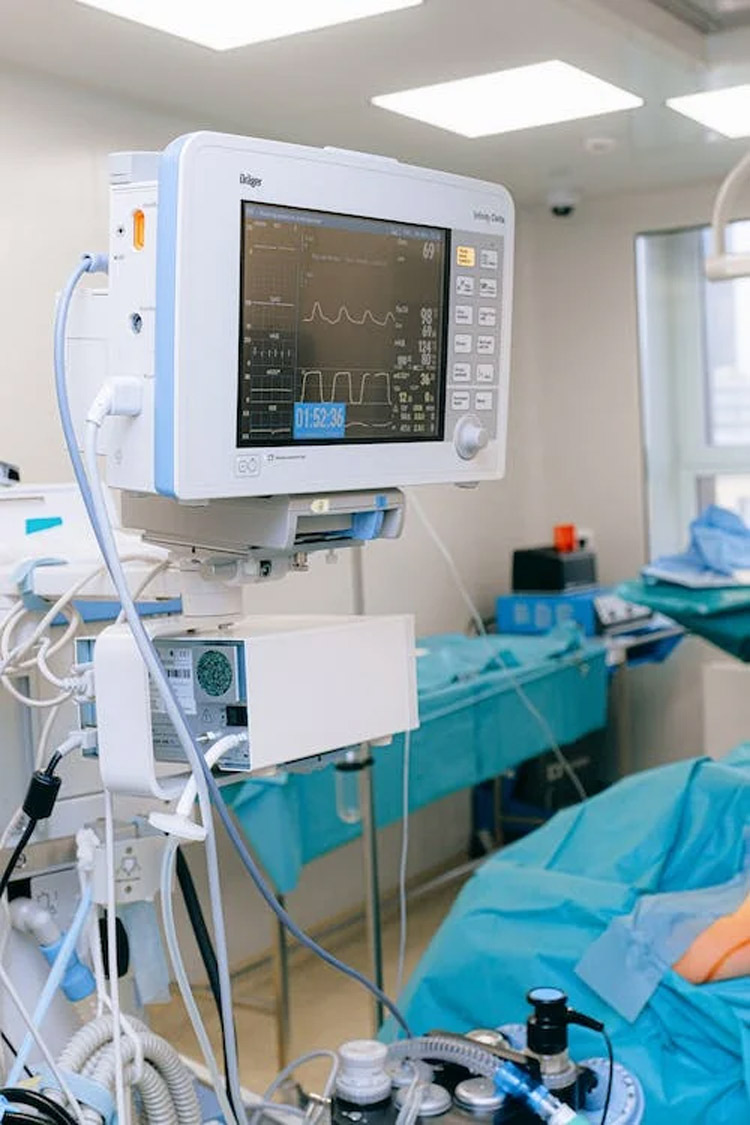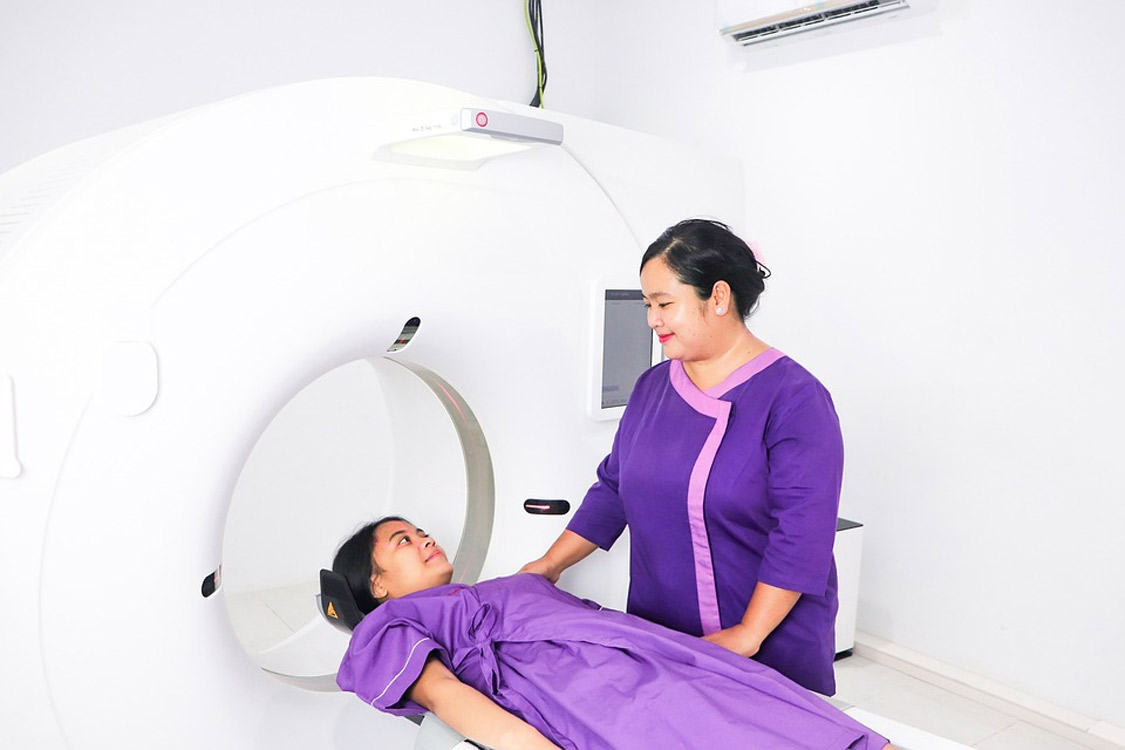
This post provides detailed information on the medical administrative assistant job description and career, including the key duties, tasks, and responsibilities they commonly perform.
It presents ideas on how to become a medical administrative assistant and advance your career.
It also highlights the major requirements you may be expected to fulfill to be hired for the medical administrative assistant role, as well as the salary for the position.
Please, continue reading:
What Does a Medical Administrative Assistant Do?
Medical administrative assistants play an integral role in the efficient delivery of healthcare services.
The medical administrative assistant job description entails transcribing treatment notes, updating medical histories, and processing of insurance forms.
Duties performed by medical administrative assistant can be categorized as core or primary roles and supplementary duties.
According to reports at O*Net Online on the medical administrative assistant occupation, some of the most important primary duties that medical administrative assistants commonly perform include answering telephones and routing calls to the right staff.
Others are scheduling and confirming diagnostic appointments, surgeries, or medical consultations of patients, and completing claim forms, such as insurance.
The important supplementary roles usually carried out by medical administrative assistants include transcribing recorded messages, practitioners’ diagnoses, and recommendations into patients’ medical records.
See detailed list of medical administrative assistant primary and supplementary tasks, with their importance (the higher the number, the more important the task is) in the table below:
Medical Administrative Assistant Tasks
| Tasks | Category | Importance |
|---|---|---|
| Take telephone calls and route to the right personnel. | Primary | 91 |
| Make and confirm patients’ appointments for diagnosis, surgery, or medical consultation. | Primary | 88 |
| Complete claim forms, including insurance. | Primary | 88 |
| Welcome visitors, ask for purpose of visit, and direct them to the right staff. | Primary | 87 |
| Transmit medical records or correspondence using fax, mail, and e-mail. | Primary | 87 |
| Maintain technical library, medical records, or correspondence files. | Primary | 87 |
| Receive and direct documents or messages, including laboratory results, to the right personnel. | Primary | 87 |
| Interview patients to complete their documents, forms, including intake or insurance forms, and case histories. | Primary | 86 |
| Operate voice mail messaging systems and other office equipment, and apply software applications, such as word processing and spreadsheet to make invoices, reports, letters, financial statements, medical records, and case histories. | Primary | 85 |
| Prepare and send financial statements or bills, keep financial records, and perform credits or collections and other bookkeeping duties. | Primary | 80 |
| Order and maintain an inventory of supplies, and perform other various clerical or administrative functions. | Primary | 65 |
| Perform transcription of recorded messages, recommendations, or practitioners' diagnoses into patients' medical records. | Supplemental | 90 |
| Compile and record reports, medical charts, and correspondence, applying typewriter or personal computer. | Supplemental | 89 |
| Schedule lab work or x-rays, and other tests or procedures for patients following physician orders. | Supplemental | 81 |
| Make arrangement for patients’ hospital admission. | Supplemental | 80 |
| Prepare correspondence, reports, articles, conference proceedings, and speeches for physicians and medical scientists. | Supplemental | 69 |
Medical Administrative Assistant Job Description Example/Sample/Template
Medical administrative assistants perform various functions in ensuring efficient delivery of general and front office support services in a healthcare facility.
Even though the specific duties and responsibilities of a medical administrative assistant depends on the organization they work for, however, the job description given below represents a good example of the duties they perform:
- Work with a team to establish efficient medical procedures and follow those procedures accordingly
- Meet with the Medical Director weekly to be mentored and given personal responsibilities
- Ensure all lab work are completed and placed in the medical record prior to patient’s visit
- Responsible for entering lab scans and values into the medical record
- Work together with the front office to ensure effective process for receiving lab work is maintained
- Prepare new guest binders and medical charts
- Prepare and restock exam rooms
- Assist the medical personnel with preparation and revision of documents, scanning of medical records, and general clerical duties
- Responsible for answering incoming calls
- Schedule medical appointment for doctors
- Collaborate with medical records
- Develop data bases and spreadsheets and maintain them
- Quickly prepare reports for emergency cases.
Medical Administrative Assistant Job Description for Resume
The duties and responsibilities contained in the sample medical administrative assistant job description presented above can serve as a good material for writing a resume for the position of medical administrative assistant.
See a complete medical administrative assistant resume here, which you can use as a template in writing your resume.
Medical Administrative Assistant Requirements: Knowledge, Skills, and Abilities for Career Success
If you are seeking to work as a medical administrative assistant with an organization, the recruiter will want to ensure that they are hiring the people that can perform the purpose, obligations, and objectives they have set for the position.
To achieve this, recruiters commonly give a list of requirements applicants seeking the medical administrative assistant job must fulfill to be considered for employment.
Shown below are major requirements any one applying for the medical administrative assistant job may be asked to meet:
- Possess a degree or diploma in an administrative or related discipline
- Must be willing and able to multi-task
- Must be extremely good at giving attention to details
- Must have basic computing, typing, and telephone etiquette skills
- Must be very competent with Windows and MS-Word and other Microsoft Office applications; specialized online medical technologies, instant messaging, and the Internet
- Must have experience working in an hospital or any medical setting
- Bilingual will an added advantage
- Must be able to ensure accountability at all times
- Must have good written and verbal communication skills and strong sense of urgency
- Must be able to work alone and within a team effectively
- Must have respectful, courteous, and professional attitude
- Ability to make sound decisions and judgment
- Outstanding prioritization and organizational techniques.
See 15 top medical administrative assistant skills to be best on the job.
Required Technological Skills
Medical administrative assistants need to gain certain technological skills to be able to effectively use the necessary software tools in the industry.
Here are some of the important skills medical administrative assistants need to have to be able to work effectively with technological tools:
- Intuit QuickBooks
- Microsoft Access
- Microsoft Outlook
- Epic Systems
- Microsoft Office software
- Microsoft Windows
- Microsoft PowerPoint
- Microsoft Excel
- Microsoft Word
- Google Docs.
Medical Administrative Assistant Employment
Medical administrative assistants can find employment in a number of places. According to report from the U.S. Bureau of Labor Statistics, medical administrative assistants can be employed in offices of physicians, offices of dentists, and outpatient care centers.
They can also find job in merchant wholesalers, nondurable goods and architectural, engineering, and related services industries.
Medical Administrative Assistant Salary
According to Indeed, medical administrative assistant earn an average of around $40,352 annually.
The top paying states include New York, NY, $46,801; Boston, MA, $46,361; Chicago, IL, $43,838; San Diego, CA, $43,293; and Atlanta, GA, $42,427 per year.
There are currently over 666,385 medical office administrative assistants working in the United States.
Women make up 89.4% of all medical office administrative assistants, while men make up 10.6%.
An employed medical office administrative assistant is 36 years old on average.
Medical Administrative Assistant Career Advancement
A medical administrative assistant has different career paths open to them, some of these include:
- Medical office administrator
Medical office administrators monitor and coordinate the administrative functions of a medical office facility.
Managing staff, creating budgets, coordinating schedules, administering payrolls, and handling complaints are all tasks that a medical office administrator undertakes.
A medical office administrator may also liaise with other clinicians to ensure that the care provided meets the needs of the patients coming in for appointments.
- Health care specialist
A health care specialist can work in a variety of roles. They may work in a clinical setting such as an oncologist, radiologist, psychologist or podiatrist.
They may also work in an administrative capacity such as an audiologist, dentist or optician.
Health care specialists may use their knowledge and the skills they have acquired to train other health care providers to help others with their health problems and ailments.
- Pharmacist
A pharmacist helps people with their medication needs. He or she may dispense prescription drugs and provide advice on their use.
In the past, a pharmacist was also responsible for dispensing basic medications such as aspirin, antacids and laxatives.
Presently, however, most pharmacists are expected to provide a broader array of services to patients, including information about over the counter medicines as well as alternative treatments.
- Pharmacy technician
A pharmacy technician is often considered a pharmacy associate, with the task of helping customers identify the correct medication for their specific health concerns.
Pharmacy technicians operate under the supervision of a pharmacist, as they are not considered qualified to dispense medication without such supervision.

- Pharmacist assistant
Pharmacist assistants assist the pharmacist with their duties. They may aid with dispensing medication, or they may retrieve and bring back medications from a pharmacy to a doctor’s office or other health care clinic.
- Medical laboratory assistant
The medical laboratory assistant provides diagnostic checks and analysis of blood, urine, tissue and other bodily fluids. Medical advanced test such as X-ray, ultrasound and CT scans may also be done in the lab.
- Medical records and health information technician
As part of their duties, medical records and health information technicians need to understand the concept of patient confidentiality.
They must safeguard any confidential information given to them by patients.
Medical records and health information technicians may also record certain aspects of a patient’s health, including his or her mood.
- Health information management specialist
A health information management specialist may also work in a variety of positions. This can involve working in hospitals, as well as other health care facilities.
The job is to ensure that the medical information and clinical data are documented properly in a medical records or other medical setting.
They help to keep organized the flow of information between the patient and doctor.
- Radiology technologist
A radiology technologist is a medical professional who is trained in the analysis of X-rays.
Specialists use this training and experience to perform non-destructive testing on patients and to assist doctors with their diagnosis.
- Physician assistant
Physician assistants are health care professionals with advanced training in medical diagnosis and treatment.
They work alongside a doctor, helping to manage the patient’s care.
Physician assistants are often found in primary care clinics and they may help diagnose and treat acute conditions or minor illnesses that do not require the services of an MD.
Most physician assistants practice in a variety of clinical settings, including hospitals, primary care centers, and long-term care facilities for seniors.
Challenges faced by Medical administrative Assistant on the Job
Some of the challenges faced by medical administrative assistants today include:
- Low Salary
Medical office administrators and professional staff are paid poorly when compared to their counterparts working in other health care settings.
The average annual salary for medical administrative assistants in the United States is $43,000.
Professions of this level do not receive raises very often, whether they are viewed as an administrator or a professional.
The biggest salary increase is available to the non-medical professionals such as pharmacy technicians who can expect a pay raise of 18% over the next 12 months.
2. Lack of Job Security
Being a medical administrative assistant is a job with very low job security. Medical offices and clinics do not expand much, so there may be no room for an additional administrator.
Therefore, the position will remain vacant, and the administrative assistants will keep their jobs, but at a lower salary level.
Even if the practices expand by several times over in size, the administrators may be forced to find another job.
3. Stressful Work Environment
Medical administrative assistants may experience high levels of stress in their work settings.
The nature of their work requires them to be on the go all of the time, dealing with a variety of people at a variety of different levels.
They must balance out the needs of physicians, other staff members, patients and clients.
4. Confidentiality Issues
As part of their job, medical administrative assistants are given confidential information about patient’s and physician health conditions.
They must understand the concept of “privilege” and not reveal the information to anyone else.
How to Become a Medical Administrative Assistant
Here are the steps you can take to become a medical administrative assistant:
- Get your high school diploma.
In high school, you should focus on courses like mathematics, typing, and office skills to prepare yourself for a career in an office.
As medical records become more electronic, computer classes are becoming increasingly important.
You should also take some biology and health classes to gain some basic medical knowledge.
- Acquire experience
While most employers prefer a Bachelor’s degree, you can work as an administrative medical assistant with only a high school diploma.
Some employers may provide on-the-job training in an entry-level position, where you will learn the necessary skills from more experienced workers.
You could also volunteer in a health care facility to learn about typical medical office procedures.
- Participate in a formal training program
You can earn an Associate’s degree or a certificate in medical administration by enrolling in a formal training program.
Courses in medical insurance billing, medical computer systems, and healthcare compliance laws are available in both degree and certificate programs.
You may also be able to participate in an internship to gain experience before graduating.
- Obtain certification
Although certification is not required to work as an administrative medical assistant, you may choose to pursue a professional designation to demonstrate your knowledge and ability.
The National Healthcare Association provides the Certified Medical Administrative Assistant credential, which you can test for after completing either a training program or one year of work as an administrative medical assistant.
Major Benefits of a Medical Administrative Assistant Career
These are some of the benefits, in addition to regular salary, that a medical administrative assistant may receive:
- Job Security
In the United States, many people depend on medical coverage that they obtain through their employer.
This makes them fairly stable. Since medical offices are not expanding and most of them are looking to save money, there is little chance of any layoffs in this field.
- Pay
Medical assistants are usually on a medical payroll and get paid more than the average salary, so their pay tends to reflect the level of their training.
- Benefits
Financial benefits such as pension, insurance coverage, and his/her reputation in the network or hospital.
For example: As a medical assistant, you will receive health benefits and retirement plans.
Many hospitals also provide housing for their employees and if you are lucky, you may even get a car to commute to work.
- Advancement Opportunities
Medical assistants are provided opportunities for advancement into more responsible positions, such as working as a case manager, insurance supervisor, or office manager.
Medical offices are usually less competitive than hospitals and therefore the advancement opportunities of medical assistants tend to be plentiful.
- Flexible Scheduling
Medical assistants have the ability to change, or even pick and choose, their work schedule regardless of the position they hold.
For example, they can choose to work full time or part time and may decide when they want to take off from work.
The flexibility provided allows them the opportunity to balance between their professional life and home life.
- Travel Opportunities
If one desires, he/she may be able to pursue a travel career as a traveling medical assistant. These travel professionals are often known to go abroad to teach medical procedures or work in rural communities.
They also have the chance to travel within the United States and experience other specific locations.
- Great Flexibility
Medical assistants do not have to stay in one place for an extended period of time, which is especially good for college students who want to explore different parts of the country before making any major decisions about their careers.
Medical Administrative Assistant Job Satisfaction
According to a recent survey by the International Journal of Science and Research (IJSR), most medical administrative assistants are dissatisfied with their job.
When asked to grade their overall satisfaction working as a medical administrative assistant, only 11% of respondents say they were satisfied with their work, while 56% say the job is not satisfying.
Also, 22% of respondent say the job was mediocre.
Conclusion
It is important for a medical administrative assistant to maintain a high level of professionalism throughout the course of his or her practice.
That includes a positive attitude, good work performance and keeping up with continuing education in this field.
If you are a recruiter or HR manager needing to hire for a medical administrative assistant position and need a sample job description for the role to make one for your organization, this post will be helpful to you.
You can adopt the medical administrative assistant duties and responsibilities shared in the job description example above in making a well matching description of the role in your facility and increase your chances of finding the right candidates for the job.
This post also affords individuals who are interested in the medical administrative assistant career the opportunity to learn about the duties commonly assigned to the position and decide if that is what they want to do or not.
Reference:
International Journal of Science and Research (IJSR)
U.S. Bureau of Labor Statistics
O*NET OnLine












